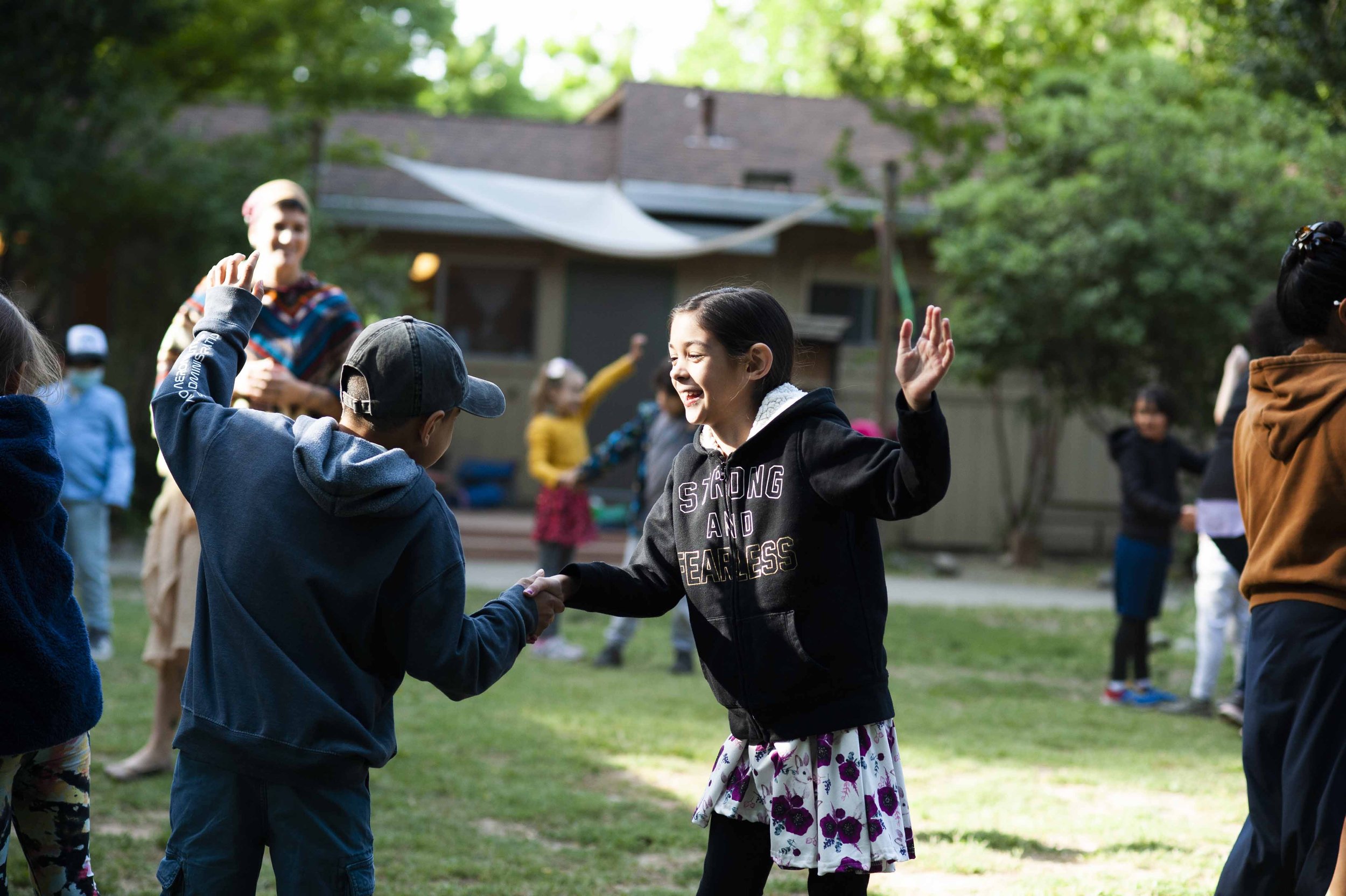What is Waldorf?
An Introduction to Waldorf Education
Lifelong learning
Waldorf schools offer a developmentally aligned, experiential, and academically rich and rigorous approach to education. We integrate the arts and aesthetic experiences into all academic disciplines from Preschool through Twelfth Grade to deepen comprehension and student engagement. Waldorf education aims to inspire lifelong learning in all students, enabling them to fully develop their unique capacities to bring their gifts and talents into the world.
Begun in 1919—and deriving its name from the Waldorf Astoria Cigarette Factory in Stuttgart, whose workers were among the first Waldorf school parents—Waldorf education is based on the insights, teachings, and educational principles outlined by the Austrian artist and scientist Rudolf Steiner. The principles of Waldorf education continuously evolve out of an understanding of human development that address the multifaceted needs of the growing child.
"The need for imagination, a sense of truth, and a feeling of responsibility—these are the three forces which are the very nerve of education."
Rudolf Steiner, founder of Waldorf education
Experiential curriculum
In Waldorf schools, mathematics, sciences, music, dance, theater, writing, literature, legends, myths, and more are not simply subjects to be read about and tested on. They are lived experiences. Through hands-on experiential learning, Waldorf students cultivate their intellectual, emotional, physical, and spiritual (i.e., uniquely individual) interests, talents, and capacities. They become individuals who are able to adapt and change, while always working in service to the world.
College and university professors who have taught Waldorf students across many academic disciplines and on a wide range of campuses, from state universities to Ivy League schools, note that Waldorf graduates have the ability to integrate disparate ideas; to assimilate and synthesize information as opposed to memorizing isolated facts outside of practical contextualization; to be flexible, creative, and willing to take intellectual and creative risks; and to act as leaders who serve and inspire others. Waldorf graduates take initiative, demonstrate passion in reaching their goals, hold high ethical and moral standards, and are highly sought-after in higher education and the job market for these attitudes and skills.
"When children relate what they learn to their own experience, they are interested and alive, and what they learn becomes their own. Waldorf schools are designed to foster this kind of learning."
Henry Barnes, longtime Waldorf teacher and former President of the Board of the Association of Waldorf Schools of North America (AWSNA)
Inspired, inclusive, independent education
Teachers in Waldorf schools are dedicated to generating an inner enthusiasm for learning within every child. Our students regularly score well above the norm and within the top 8% on the SAT, ACT, and other standardized tests even though we do not allow these limited metrics to guide our curriculum or pedagogy. Our approach eliminates reliance on competitive testing and extrinsic rewards to measure and encourage learning in the lower grades, allowing motivation to arise authentically and uniquely from within using meaningful and individualized feedback to guide learning as a generative process and building the capacity for joyful, lifelong learning.
Waldorf education is inclusive and independent. It upholds the principles of freedom in education and engages independent self-administration locally, continentally, and internationally rather than relying on state-mandated programming decisions. Waldorf schools are meant to be hyper-local, place-based reflections of the communities from which they arise. There are currently more than 300 Waldorf schools in the US and over 1,000 worldwide. Each school is a unique reflection of the time and place in which it exists, and teachers strive to hold the consciousness of this through culturally responsive and sustaining pedagogy for all students and families.
Resources
About Waldorf Education
How it all began: the history of Waldorf schools, waldorf-100.org, 2020
Sacramento Waldorf School teacher Marianne Gray's blog post, "What Is Waldorf?", 2019
Happiness in the Classroom, Association of Waldorf Schools of North America (AWSNA), August 8, 2016
A Silicon Valley School that Doesn't Compute, The New York Times, October 22, 2011
About Play-Based Early Childhood Education
Play-Based Learning vs. Academics in Preschool, Laura Longhine, U.S. News & World Report, June 17, 2022
Rocking and Rolling. Fresh Air, Fun, and Exploration: Why Outdoor Play Is Essential for Healthy Development, Kathy Kinsner, National Association for the Education of Young Children (NAEYC), 2019
About Waldorf Alumni
SWS Student Excellence (Recent college and university acceptances and more)
Waldorf Students in the News, Association of Waldorf Schools of North America (AWSNA), May 8, 2020
How Waldorf Alumni Fare after Graduation from High School, Douglas Gerwin, Research Institute for Waldorf Education’s Research Bulletin, 2019
About Mindful Media and Technology Use
Is Technology Killing Empathy? with Sherry Turkle, American Psychological Association, May 4, 2022
How Tech Addiction Hijacked Our Brains, NBC Left Field, May 2019



